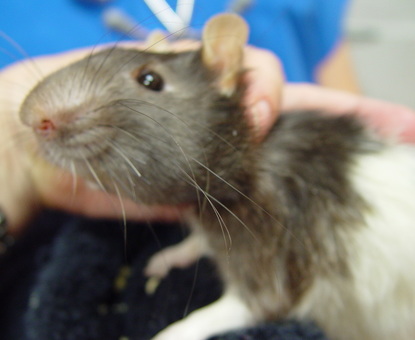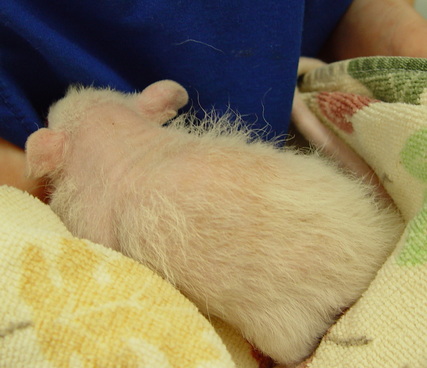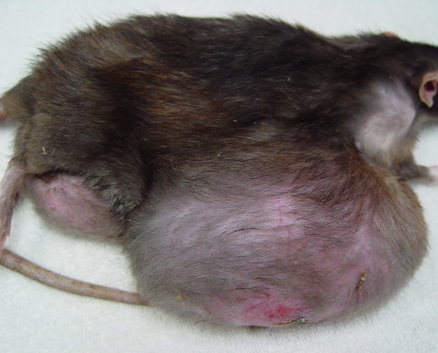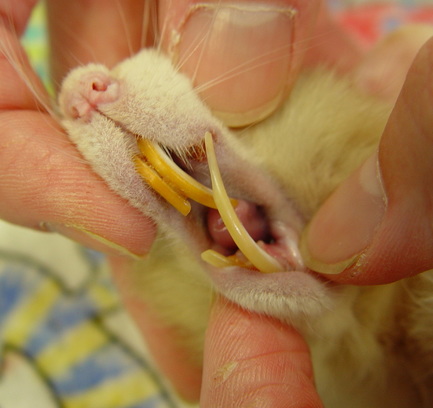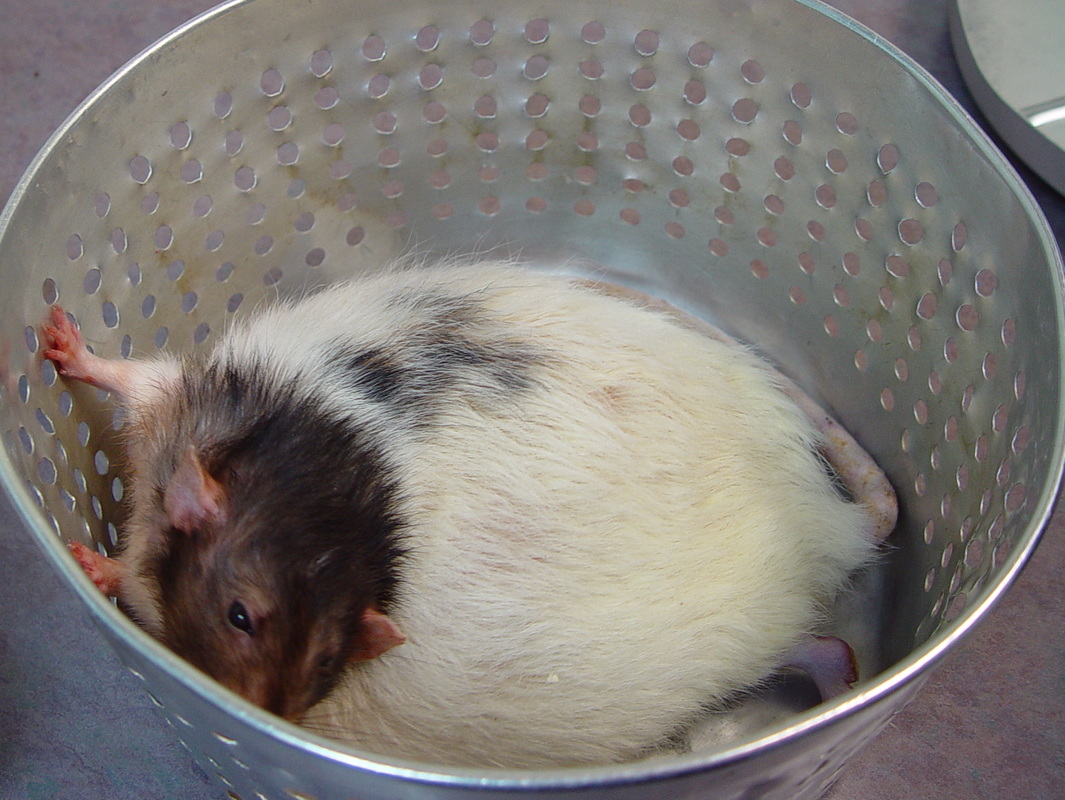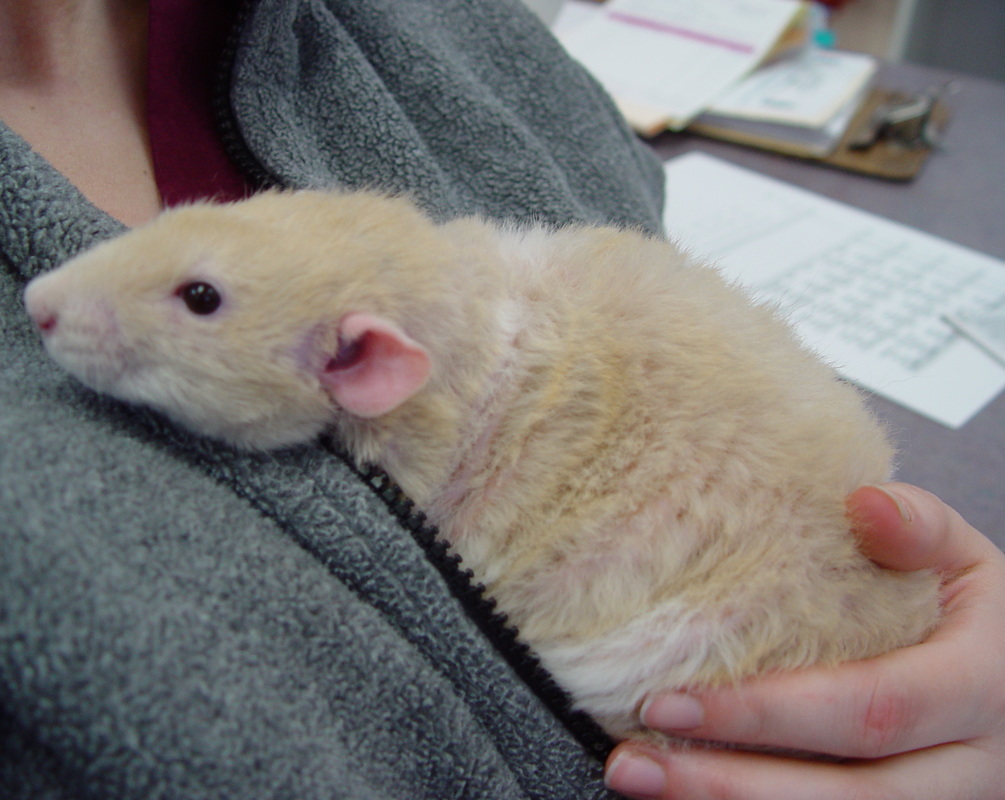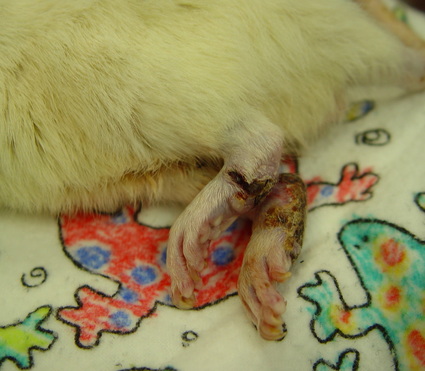Health Problems with Rats
by Maggie Wood, DVM
All photos and edited by Susan Horton, DVM
All photos and edited by Susan Horton, DVM
Respiratory infections are one of the most common health problems of rats. They can be caused by a variety of bacteria and viruses. Symptoms that may be seen include increased respiratory noise, sneezing, nasal discharge, faster respiratory rate, labored breathing, and red tears. The red tears are not blood, but a pigment that rats secrete when they are stressed called porphyrin. Some respiratory infections resolve completely with antibiotics and do not recur. However, there are other infections that become more chronic. These infections are often caused by Mycoplasma, which is a bacteria that is difficult to eradicate permanently. Rats with chronic infections frequently have relapses of symptoms and need repeated treatments. These respiratory infections are contagious, so if you have a rat that is a chronic carrier, it is better not to introduce new rats into the household. Pictured below is a rat with a severely swollen nose. He had a severe upper respiratory infection.
Mites are also common in rats. Signs may include itching, flaky skin, hair loss, redness, and irritation of the skin. Symptoms can range from very mild to severe, depending on the degree of the mite infestation. Mites may also cause secondary skin infections, especially if the rats are itchy and scratching their skin a lot. Pictured below is a rat with scabs and hair loss.
Mammary tumors occur frequently in female rats. This is the equivalent of rat “breast cancer”. Since rats have multiple sets of nipples, the tumors can be anywhere along the rat’s chest or belly and can be single or multiple. They start out as a small lump, but if not removed, they can grow into a very large tumor quickly. Most of the tumors are benign, which means they usually don’t spread to other organs in the body. However some of them can be malignant. Even though most of the tumors are benign, if the tumors are not removed while they are still small, they will continue to grow and eventually be so large that they interfere with the rat’s quality of life and would require a longer, more extensive surgery to remove. Therefore, it is recommended to have them surgically removed while they are still small.
Rats can also have dental problems. Their front teeth grow continually through their lifetime. In a normal rat, the top teeth will hit the bottom teeth and therefore, their teeth are constantly ground down even though they are growing. Some rats have crooked or misaligned teeth, usually either from a genetic defect or trauma. In these rats, some or all of the teeth do not occlude normally and will overgrow, often in an abnormal direction. These rats will need to have their teeth frequently trimmed by a veterinarian. The problem may be obvious, especially if the teeth protrude out of the mouth, but more subtle signs can include difficulty chewing or decreased appetite. We treat rat dental disease routinely at Chicago Exotics.
In addition to the common rat diseases listed above, it is important to remember that rats are also susceptible to the same health problems that affect most other pets, such as heart disease and kidney disease. Therefore, it is recommended to have regular checkups and to have your rat examined promptly if you notice any problems at home. Pictured below is an overweight rat. Inappropriate diet and exercise will lead to this problem.
Sometimes the only hint that your rat gives you that something is wrong is an un-kept coat. This rat's coat is yellowing with grease from follicular secretions. He is not feeling well enough to keep himself clean. Pictured below is pododermatitis. We see this syndrome associated with improper footing or caging.
If you have any questions, please feel free to call us at 847-329-8709.
